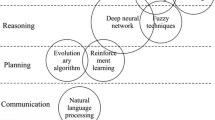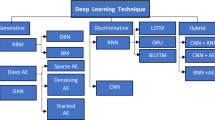Abstract
The era of everything as a service led to an explosion of services with similar functionalities on the internet. Quickly obtaining a high-quality service has become a research focus in the field of service recommendation. Studies show that quality of service (QoS) predictions are an effective way to discover services with high quality. However, sparse data and performance fluctuation challenge the accuracy and robustness of QoS prediction. To solve these two challenges, this paper proposes a location-based deep factorization machine model, namely LDFM, by employing information entropy and location projection of users and services. Particularly, our LDFM can be decomposed into three phases: i) extending a raw QoS dataset without introducing additional information, where LDFM projects the existing users (services) in the direction of their position vectors to increase the number of users (services) as well as the number of records that users invoke services; ii) mining a sufficient number of potential features behind the behaviors of users who invoke services, where LDFM employs a factorization machine to extract potential features of breadth with low dimensions (i.e., one and two dimensions) and utilizes deep learning to seek potential depth features with high dimensions; and iii) weighting extracted features within various dimensions, where LDFM employs information entropy to strengthen the positive effects of valid features while reducing the negative impacts generated by biased features. Our experimental results (including t-test analyses) show that our proposed LDFM always performs well under different user-service matrix densities and performs better than existing start-of-the-art methods in terms of the accuracy and robustness of QoS predictions.







Similar content being viewed by others
References
Ghafouri SH, Hashemi SM, Hung PCK (2020) A Survey on Web Service QoS Prediction Methods. IEEE Trans Serv Comput:1–1. https://doi.org/10.1109/TSC.2020.2980793
Tong E, Niu W, Liu J (2021) A Missing QoS Prediction Approach via Time-aware Collaborative Filtering. IEEE Trans Serv Comput:1–14. https://doi.org/10.1109/TSC.2021.3103769
Yang Y, Zheng Z, Niu X, Tang M, Lu Y, Liao X (2018) A Location-Based Factorization Machine Model for Web Service QoS Prediction, pp 1–1. https://doi.org/10.1109/TSC.2018.2876532
Zheng Z, Xiaoli L, Tang M, Xie F, Lyu MR (2020) Web Service QoS Prediction via Collaborative Filtering: A Survey. IEEE Trans Serv Comput:1–18. https://doi.org/10.1109/TSC.2020.2995571
Zhu J, He P, Zheng Z, Lyu MR (2017) Online QoS Prediction for Runtime Service Adaptation via Adaptive Matrix Factorization. IEEE Trans Parallel Distrib Syst 28(10):2911–2924. https://doi.org/10.1109/TPDS.2017.2700796
Zou G, Chen J, He Q, Li K-C, Zhang B, Gan Y (2020) NDMF: Neighborhood-integrated deep matrix factorization for service QoS prediction. IEEE Trans Netw Serv Manag 17(4):2717–2730
Chen X, Liu X, Huang Z, Sun H (2010) Regionknn: a scalable hybrid collaborative filtering algorithm for personalized web service recommendation. In: 2010 IEEE International conference on web services. IEEE, pp 9–16
Chen X, Zheng Z, Yu Q, Lyu MR (2013) Web service recommendation via exploiting location and qos information. IEEE Trans Parallel Distrib Syst 25(7):1913–1924
Chen Z, Shen L, Li F (2019) Your neighbors are misunderstood: on modeling accurate similarity driven by data range to collaborative web service qos prediction. Futur Gener Comput Syst 95:404–419. https://doi.org/10.1016/j.future.2019.01.003
Guo H, Tang R, Ye Y, Li Z, He X (2017) Deepfm: a factorization-machine based neural network for ctr prediction. In: Proceedings of the twenty-sixth international joint conference on artificial intelligence, pp 1725–1731
He X, Du X, Wang X, Tian F, Tang J, Chua TS (2018) Outer product-based neural collaborative filtering. In: Proceedings of the Twenty-Seventh International Joint Conference on Artificial Intelligence, pp 2227–2233
He X, Liao L, Zhang H, Nie L, Hu X, Chua TS (2017) Neural collaborative filtering. In: Proceedings of the 26th international conference on world wide web, pp 173–182
Jin X, Xu C, Feng J, Wei Y, Xiong J, Yan S (2016) Deep learning with s-shaped rectified linear activation units. In: Proceedings of the AAAI Conference on Artificial Intelligence, vol. 30
Liu J, Tang M, Zheng Z, Liu X, Lyu S (2015) Location-aware and personalized collaborative filtering for web service recommendation. IEEE Trans Serv Comput 9(5):686–699
Mnih A, Salakhutdinov RR (2008) Probabilistic matrix factorization. In: Advances in neural information processing systems, pp 1257–1264
Rendle S (2010) Factorization machines. In: 2010 IEEE International conference on data mining. IEEE, pp 995–1000
Rendle S, Gantner Z, Freudenthaler C, Schmidt-Thieme L (2011) Fast context-aware recommendations with factorization machines. In: Proceedings of the 34th international ACM SIGIR conference on Research and development in Information Retrieval, pp 635–644
Sarwar B, Karypis G, Konstan J, Riedl J (2001) Item-based collaborative filtering recommendation algorithms. In: Proceedings of the 10th international conference on World Wide Web, pp 285–295
Shao L, Zhang J, Wei Y, Zhao J, Xie B, Mei H (2007) Personalized qos prediction forweb services via collaborative filtering. In: IEEE International conference on web services (ICWS 2007), pp 439–446. https://doi.org/10.1109/ICWS.2007.140
Shao L, Zhang J, Wei Y, Zhao J, Xie B, Mei H (2007) Personalized qos prediction forweb services via collaborative filtering. In: IEEE International conference on web services (icws 2007), pp 439–446. IEEE
Tang J, Wang K (2018) Personalized top-n sequential recommendation via convolutional sequence embedding. In: Proceedings of the Eleventh ACM International Conference on Web Search and Data Mining, pp 565–573
Tang M, Jiang Y, Liu J, Liu X (2012) Location-aware collaborative filtering for qos-based service recommendation. In: 2012 IEEE 19Th international conference on web services. IEEE, pp 202–209
Tang M, Zhang T, Yang Y, Zheng Z, Cao B (2018) Qos-aware web service recommendation based on factorization machines. Chin J Comput 41(6):1300–1313
Wang Y (2015) A formal model of qos-aware web service orchestration engine. IEEE Trans Netw Serv Manag 13(1):113–125
Wu S, Ren W, Yu C, Chen G, Zhang D, Zhu J (2016) Personal recommendation using deep recurrent neural networks in netease. In: 2016 IEEE 32Nd international conference on data engineering (ICDE)9. IEEE, pp 1218–122
Wu Y, Xie F, Chen L, Chen C, Zheng Z (2017) An embedding based factorization machine approach for web service qos prediction. In: International conference on service-oriented computing. Springer, pp 272–286
Xu J, Zheng Z, Lyu MR (2016) Web service personalized quality of service prediction via reputation-based matrix factorization. IEEE Trans Reliab 65(1):28–37. https://doi.org/10.1109/TR.2015.2464075
Xue HJ, Dai X, Zhang J, Huang S, Chen J (2017) Deep matrix factorization models for recommender systems. In: IJCAI, vol. 17, Melbourne, pp 3203–3209
Yang Y, Zheng Z, Niu X, Tang M, Lu Y, Liao X (2018) A location-based factorization machine model for web service qos prediction. IEEE Transactions on Services Computing
Zhang S, Yao L, Sun A, Tay Y (2019) Deep learning based recommender system: a survey and new perspectives. ACM Comput Surv (CSUR) 52(1):1–38
Zhang Y, Wang K, He Q, Chen F, Deng S, Zheng Z, Yang Y (2019) Covering-based web service quality prediction via neighborhood-aware matrix factorization. IEEE Transactions on Services Computing
Zhang Y, Yin C, Wu Q, He Q, Zhu H (2019) Location-aware deep collaborative filtering for service recommendation. IEEE Transactions on Systems, Man, and Cybernetics, Systems
Zheng Z, Ma H, Lyu MR, King I (2010) Qos-aware web service recommendation by collaborative filtering. IEEE Trans Serv Comput 4(2):140–152
Zheng Z, Zhang Y, Lyu MR (2010) Distributed qos evaluation for real-world web services. In: 2010 IEEE International conference on web services. IEEE, pp 83–90
Acknowledgements
This work is partially supported by the National Natural Science Foundation of China [No.62006003, U1936220], the National Key R&D Program of China under Grant [No.2019YFB1704101], the Natural Science Foundation of Anhui Province of China [No.2008085QF307], and the Anhui Foundation for Science and Technology Major Project under Grant [No.18030901034]. Yiwen Zhang is the corresponding author of this paper.
Author information
Authors and Affiliations
Corresponding author
Additional information
Publisher’s note
Springer Nature remains neutral with regard to jurisdictional claims in published maps and institutional affiliations.
Rights and permissions
About this article
Cite this article
Wang, Q., Zhang, M., Zhang, Y. et al. Location-based deep factorization machine model for service recommendation. Appl Intell 52, 9899–9918 (2022). https://doi.org/10.1007/s10489-021-02998-9
Accepted:
Published:
Issue Date:
DOI: https://doi.org/10.1007/s10489-021-02998-9




